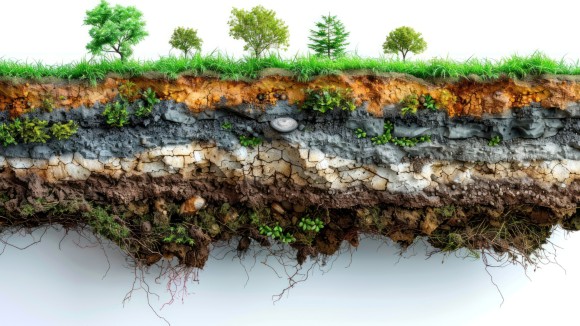 Asim Biswas, PhD, University of Guelph, Canada
Asim Biswas, PhD, University of Guelph, Canada
Asim Biswas is a Professor and Graduate Program Coordinator at the School of Environmental Sciences and the OAC Research Chair in Soils and Precision Agriculture. He is also a member of the Royal Society of Canada College of New Scholars. Dr. Biswas specialises in data-driven sustainable soil management. He focuses on enhancing the productivity and resilience of land-based agri-food production systems in an environmentally sustainable manner. Dr Biswas has been a member of the Scientific Reports Editorial Board since 2016.
 Shah Fahad, PhD, Abdul Wali Khan University Mardan, Pakistan
Shah Fahad, PhD, Abdul Wali Khan University Mardan, Pakistan
Shah Fahad is working as Assistant Professor in the Department of Agronomy, Abdul Wali Khan University Mardan, Khyber Pakhtunkhwa, Pakistan. His research focuses on important aspects of climate change, plant physiology and breeding, plant nutrition, plant stress responses and tolerance mechanisms, and exogenous chemical priming-induced abiotic stress tolerance. Dr. Fahad has been an Editorial Board Member for Scientific Reports since 2022.
 Gloria Falsone, PhD, University of Bologna, Italy
Gloria Falsone, PhD, University of Bologna, Italy
Gloria Falsone is Associate Professor of Pedology at the University of Bologna, Italy. Her main research topics are the biophysical of soil, the dynamics of organic matter in relation to the soil degradation processes, the pedogenesis and soil evolution also as reply to the land use and environmental stress. Dr. Falsone has been an Editorial Board Member for Scientific Reports since 2024.
 Ornella Francioso, PhD, University of Bologna, Italy
Ornella Francioso, PhD, University of Bologna, Italy
Ornella Francioso is an Associate Professor of Soil Chemistry at the University of Bologna (Italy). Her research focuses on the chemical structure of soil organic matter, the effects of organic fertilization, and the chemical and biological processes related to soil fertility. Since 2021, she has been a member of the Editorial Board of Scientific Reports.
 Georgia Ntatsi, PhD, Agricultural University of Athens, Greece
Georgia Ntatsi, PhD, Agricultural University of Athens, Greece
Georgia Ntatsi is Assistant Professor at the Laboratory of Vegetable Production, of the Agricultural University of Athens (AUA). She is specialised on vegetable production, plant nutrition, soil analyses, hydroponics, vegetable grafting, plant physiology, abiotic stress, fruit quality, biofortification, biostimulants, phytohormones, plant metabolism, organic production, vertical farming, greenhouse environment and its impact on vegetable production and quality. Dr. Ntatsi has been an Editorial Board Member for Scientific Reports since 2021.

